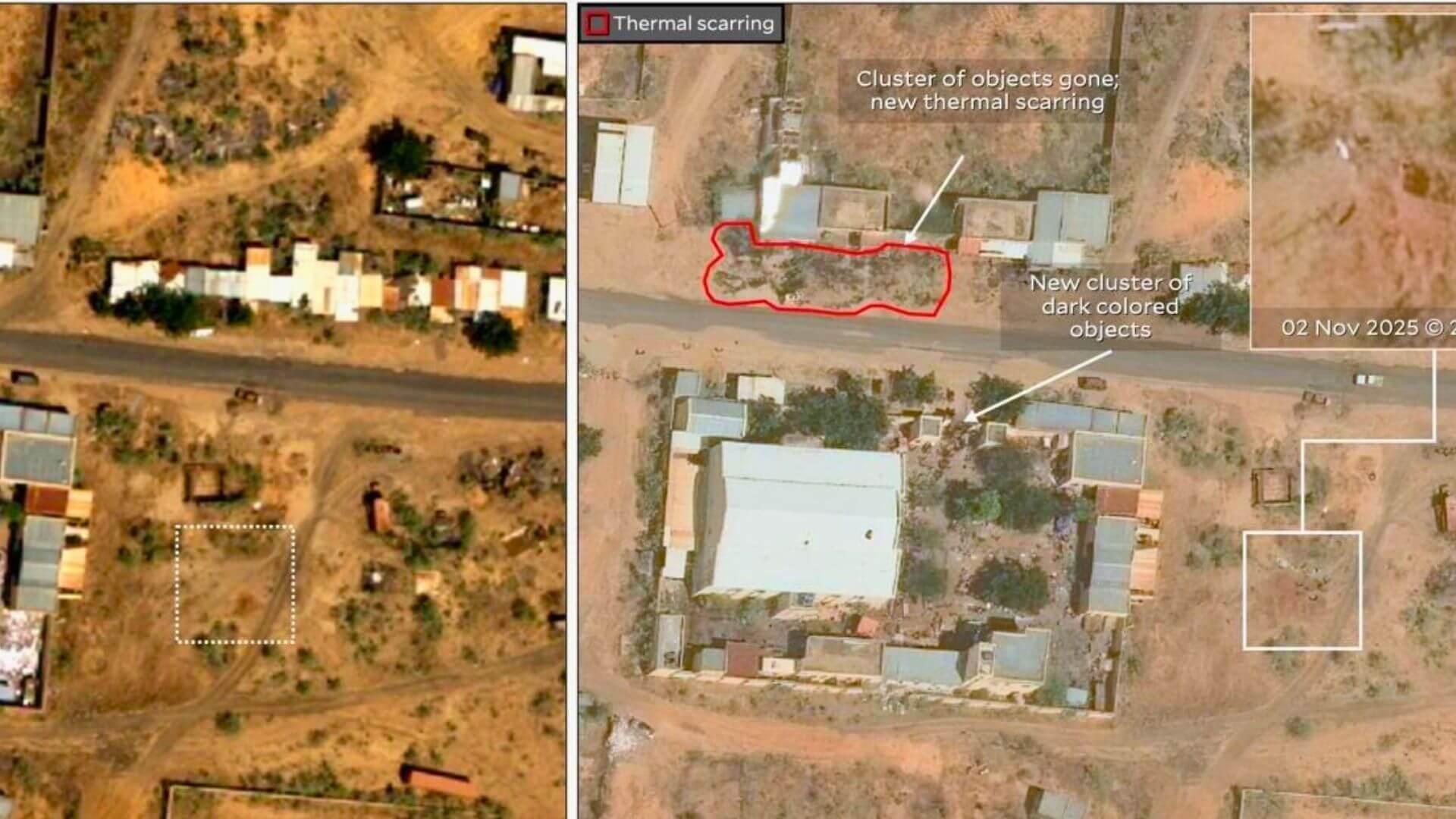Sudan’s RSF has accepted a U.S.-mediated ceasefire while new satellite images reveal mass graves in El-Fasher. As famine and displacement worsen, pressure mounts on Sudan’s military to end the war and allow aid to reach millions trapped in crisis.
KHARTOUM, SUDAN — 2025-11-05 — Sudan’s Rapid Support Forces (RSF) announced Thursday it would accept a U.S.-backed humanitarian ceasefire, even as new satellite imagery revealed mass graves in El-Fasher, Darfur’s war-ravaged regional capital. The dual developments intensified global pressure on both the RSF and Sudan’s army to halt a civil conflict that the United Nations calls the world’s worst humanitarian crisis.
The RSF’s declaration follows 18 months of siege warfare culminating in its capture of El-Fasher on October 26, after weeks of brutal fighting that killed thousands. Sudan’s military government, led by General Abdel Fattah al-Burhan, has yet to respond and instead vowed to continue military operations to “defeat the enemy.”
The proposed truce—brokered by a coalition known as the Quad, comprising the United States, Egypt, Saudi Arabia, and the United Arab Emirates—calls for a three-month cessation of hostilities across Sudan. It aims to open humanitarian corridors, protect civilians, and set the stage for peace talks in Jeddah on a permanent ceasefire and political transition.
In a statement, the RSF said it agreed to the truce “in response to the aspirations of the Sudanese people” and to “address the catastrophic humanitarian consequences of the war.” The U.S. State Department urged both sides to finalize the agreement immediately, calling it “a moral and political imperative to end the suffering of millions.”
However, hours after the announcement, Yale University’s Humanitarian Research Lab released satellite images identifying “two large earth disturbances consistent with mass graves” near a mosque and hospital in El-Fasher.
The report, verified by independent analysts, suggested systematic executions and body disposals by RSF fighters following the city’s fall. The World Health Organization (WHO) confirmed over 460 deaths among patients and medical personnel at El-Fasher’s former pediatric hospital during the RSF’s assault.
Famine conditions now grip the city, where over 70,000 residents have fled since late October, joining the 11 million Sudanese displaced nationwide. According to the UN, 24 million people—more than half of Sudan’s population—are suffering acute food insecurity, making the crisis the largest humanitarian emergency in the world today.
Despite the RSF’s public acceptance of the ceasefire, General al-Burhan’s forces appear unwilling to negotiate. The army reiterated Thursday its commitment to “avenge the martyrs” and “liberate all occupied territories.” Sudan’s defense minister acknowledged U.S. diplomatic efforts but confirmed that “preparations for continued warfare remain in progress.”
The civil war erupted in April 2023, pitting the army against its former ally, the RSF, which now controls nearly all of Darfur and western Sudan, while the army maintains power in Khartoum, Port Sudan, and the Nile corridor.
RSF leader General Mohamed Hamdan Dagalo (Hemedti) announced an internal investigation into “violations” by his troops and claimed arrests of perpetrators had begun. Human rights groups remain skeptical, citing a documented pattern of denial amid widespread reports of ethnic cleansing against non-Arab communities in Darfur.
The UN Human Rights Council will hold an emergency session on November 14 to address the El-Fasher atrocities and evaluate potential international accountability measures. Meanwhile, sporadic fighting continues around Khartoum and North Kordofan, undermining hopes for immediate de-escalation.
With famine deepening and civilian suffering at catastrophic levels, the viability of the ceasefire—and the fate of millions—now depends on whether Sudan’s army will join the RSF at the negotiating table. For Sudanese families trapped between siege and starvation, peace remains agonizingly out of reach.
Leave a comment
Your email address will not be published. Required fields are marked *





